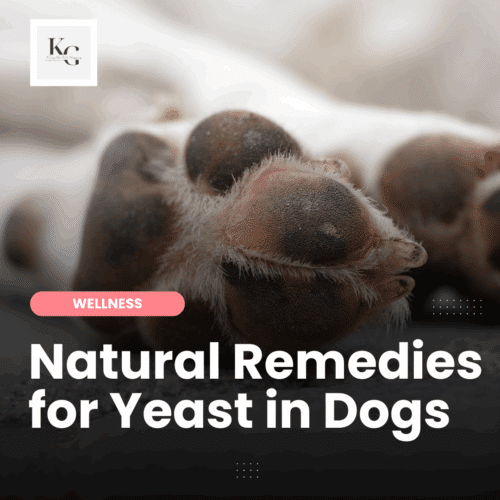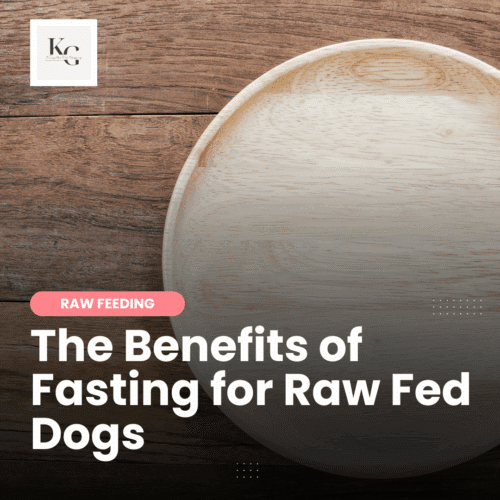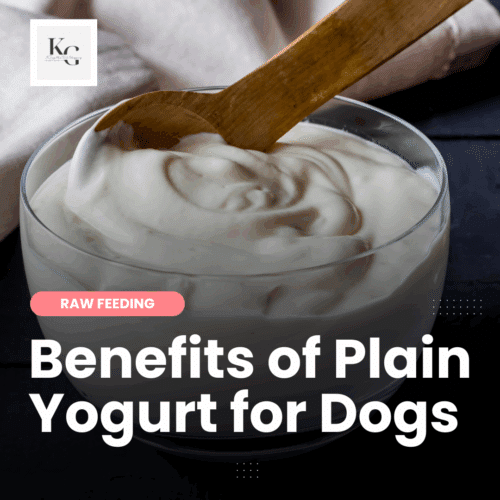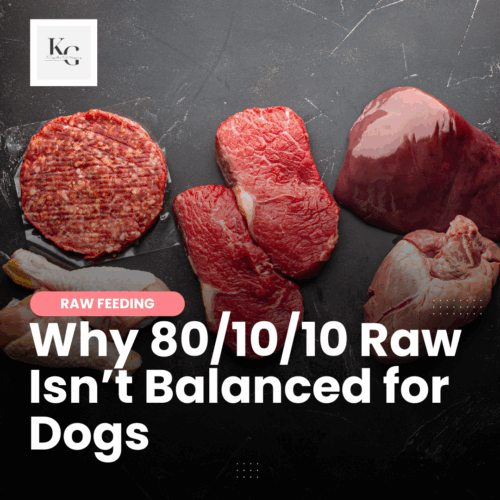Keep the Tail Wagging is supported by pet parents. I occasionally earn a commission (at no additional cost to you) when you click through an affiliate link to one of my favorite products. Thank you for your support. Read More
I recently read that black women are prone to Vitamin D deficiencies because the melanin in our skin naturally blocks the sun's UV rays. I also spend a lot of time indoors during our cold and rainy Pacific Northwest winters, and I'm at high risk—and so are my dogs.
Vitamin D is crucial in various bodily functions, from bone health to immune support. Dogs metabolize Vitamin D differently than other mammals. They cannot produce Vitamin D through sun exposure and rely on dietary intake of this nutrient.
This article explores a spectrum of foods brimming with Vitamin D, sheds light on the nuances between Vitamin D2 and D3, and delves into the impact of Vitamin D on inflammation, absorption challenges, potential synergies with Vitamin K, and the perils of Vitamin D toxicity.
Benefits of Vitamin D in Dogs
A few key benefits of vitamin D for dogs include:
Bone Health: Vitamin D aids in calcium absorption and bone formation, helping to promote proper growth and maintain strong and healthy bones in dogs.
Muscle Function: Vitamin D can help support muscle strength and coordination in dogs.
Immune System Support: Vitamin D can help boost your dog's immune system and enhance their ability to fight off illnesses.
Calcium Balance: Vitamin D helps regulate calcium levels in the blood, ensuring that your dog maintains the right calcium balance for various bodily functions, essential for nerve function, muscle contraction, and other physiological processes.
Skin and Coat Health: Vitamin D promotes healthy skin and coat in dogs.
Brain Function: Adequate Vitamin D levels may support overall brain function and mental well-being.
Foods Rich in Vitamin D
My dogs receive their Vitamin D from the following whole foods.
- Fatty Fish: Wild-caught salmon, mackerel, and sardines are excellent sources of Vitamin D.
- Rainbow Trout (wild-caught)
- Egg Yolks: Egg yolks contain Vitamin D, with pastured or omega-3 enriched eggs offering higher levels.
- Mushrooms: Certain mushrooms, like shiitake mushrooms, can provide a plant-based source of Vitamin D when exposed to sunlight.
- Beef Liver: Although liver is a small part of a dog's raw food diet, it still packs a nutritional punch, including lower levels of Vitamin D, which makes it a great addition to a dog's diet.
While many sources claim mushrooms are a good source of Vitamin D, conflicting information exists about the amount of Vitamin D2 and D3 in mushrooms.
Vitamin D2 vs. D3
In my research, Vitamin D2 and D3 were often mentioned. But what's the difference?
Vitamin D2 (ergocalciferol): Primarily derived from plant sources and fortified foods, Vitamin D2 is less bioavailable and effective than Vitamin D3.
Vitamin D3 (cholecalciferol): The more potent form of Vitamin D, D3 is synthesized by the skin in response to sunlight and is found in animal-based foods and supplements.
Although dogs can absorb Vitamin D2, it's unclear if it's as bioavailable as Vitamin D3. Feeding mushrooms to dogs may boost Vitamin D levels, or it may not. I feed mushrooms due to their high levels of antioxidants.
Impact of Vitamin D on Inflammation
Vitamin D is vital in modulating the immune response and reducing inflammation. Adequate Vitamin D levels are linked to lower levels of inflammatory markers. They may help mitigate conditions associated with chronic inflammation, which can contribute to the development and progression of various diseases, such as:
- Cardiovascular Diseases (heart disease)
- Autoimmune Disorders (allergies, skin issues)
- Cancer
- Neurodegenerative Diseases (cognitive disorders)
- Metabolic Disorders (obesity, diabetes)
- Digestive Disorders (IBD, poor nutrient absorption)
- Chronic Pain Conditions
Vitamin K and Vitamin D Synergy
Vitamin K aids in calcium regulation and bone health, working synergistically with Vitamin D. While they complement each other, there isn't a strict requirement to take them together, but ensuring adequate intake of both nutrients can support optimal bone and cardiovascular health.
My dogs get Vitamin D primarily from egg yolks, fatty fish, and salmon oil. Vitamin K can be found in meat, eggs, and leafy greens. Using a base mix when making dog food provides confidence that my dogs are getting these nutrients at the levels needed.
Signs of Vitamin D Deficiency in Dogs
Vitamin D deficiency in dogs can manifest through various symptoms that can vary in severity depending on the extent of the deficiency. Some potential symptoms of vitamin D deficiency in dogs include:
- Weakness and Lethargy
- Muscle Pain and Stiffness
- Bone Problems (bone deformities, limping, difficulty standing or walking, and an increased risk of fractures)
- Decreased Appetite
- Unexplained Weight Loss
- Poor Coat Condition/Skin Irritation
- Increased Vulnerability to Infections
- Gastrointestinal Issues
- Behavioral Changes (increased irritability, sensitivity to touch, restlessness)
- Generalized Pain and Discomfort
If you suspect that your dog may be experiencing vitamin D deficiency symptoms, it is crucial to consult a veterinarian for proper diagnosis and treatment. A veterinary professional can conduct tests to assess your dog's vitamin D levels and recommend appropriate dietary changes, supplements, or treatment options to address the deficiency and improve your dog's health and well-being.
Diseases Due to Vitamin D Deficiency
Vitamin D deficiency can lead to various health issues in dogs due to its crucial role in maintaining overall health and supporting multiple bodily functions. Here are some health issues that can arise in dogs deficient in vitamin D:
- Bone Disorders
- Muscle Weakness
- Weak Immune System
- Skin and Coat Issues
- Metabolic Disorders
- Calcium Imbalance
- Risk of Chronic Diseases (cardiovascular diseases, cancer, and autoimmune disorders)
Risks of Excessive Vitamin D Intake
Although Vitamin D toxicity is rare and typically occurs from high supplement doses, excessive Vitamin D can lead to hypercalcemia, causing symptoms like nausea, weakness, and kidney damage.
By supplementing Vitamin D through fresh food rather than pills and powders, I'm reducing the risk of Vitamin D toxicity.





